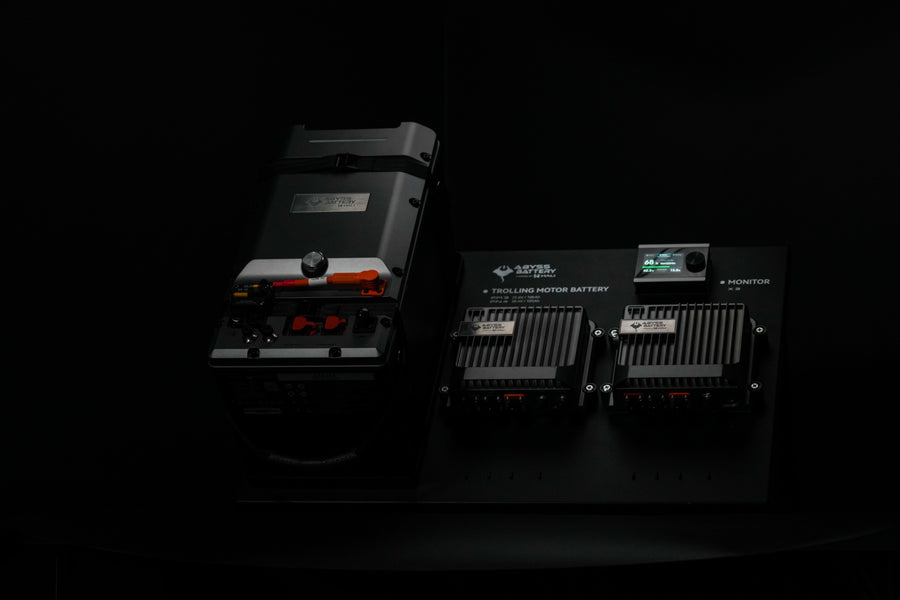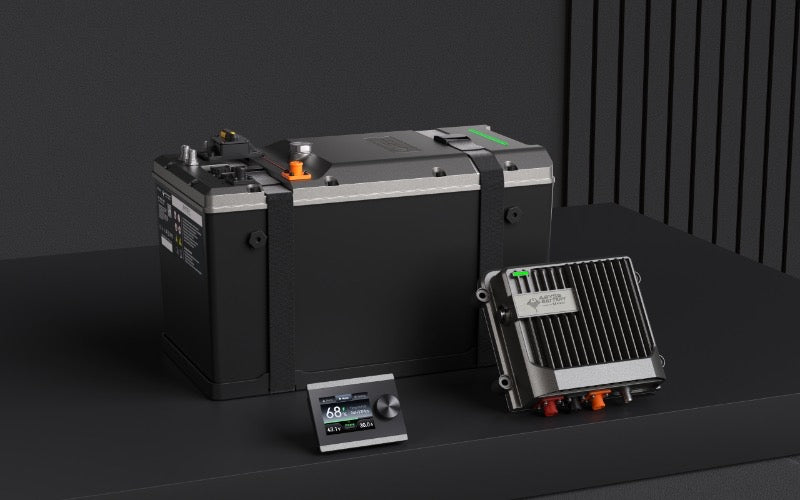Tips for Storing Your Boat Battery During Winter

Are you putting your boat away in storage for the winter? What are you supposed to do with the battery? Below, we offer some simple tips for storing your boat battery during the winter to ensure it’s ready to thrive once spring returns.
Remove From Boat
The first thing every boat owner should do when getting ready to store their vessel for the winter is remove the battery. A connected battery in your boat will continue to draw power for months while in storage. Even if you have a battery disconnect switch, leaving the battery in the boat could still drain it of power.
A battery also requires more comfortable conditions for storage. Your boat may not mind a cold storage area, but it could cause long-term damage to the battery. At the least, you should disconnect the batteries from the electrical system. Removing the battery makes it easier to charge (if needed) and inspect the boat’s electrical system.
Conduct Inspection
Once you remove the battery, it’s wise to take the opportunity to conduct a thorough post-season inspection of the battery and the system. Some parts of the battery and electrical system boaters that you should inspect include:
- Battery cables
- Connections
- Battery case
- Battery terminals
If you find signs of rust and corrosion in the system or battery terminals, you may have water leaking within the compartment or may need to replace the battery altogether. As a marine battery manufacturer, Abyss Battery can help boaters who need to replace their batteries in the offseason find the lithium battery that suits their vessels!
Find a Comfortable Storage Area
If the boat battery and system look good, it’s time to find a place to store it for the winter. Ideally, the battery would be stored in a climate-controlled area that doesn’t get too cold.
For lead-acid batteries, temperatures below 40 degrees Fahrenheit can cause long-term damage and shorten their lifespan. Lithium marine batteries are much more durable and are fine in temperatures above -15 degrees Fahrenheit. Also, storing the battery in an elevated and covered position is wise to avoid any water leaks or moisture buildup.
Hook Up to Charger (for Lead-Acid Batteries)
Long-term storage for a typical lead-acid battery will eventually cause it to lose its charge capacity and die if it doesn’t have a steady charge. Obviously, this isn’t good for the battery, so many boaters use trickle chargers or battery maintainers to keep the battery healthy during the winter months.
Lithium battery owners don’t have this problem, as lithium units can be stored for years with only a moderate loss in capacity. But, if you have a lithium battery, ensure it’s in a charged state of about 40 percent for ideal results.
We hope you’ve learned something from our brief guide! If you’d like to learn more about marine battery maintenance and lithium batteries, contact our expert staff at Abyss Battery.




Thank you for explaining how you should do a post-season inspection of your battery and the system around it. My sister has been wondering what she should do before storing her boat for a few months while she’s out of town. I’ll be sure to share this with her so she can remember to do this step. https://www.safegardselfstorage.com/boat-and-rv-storage
Thank you for telling us that lithium marine batteries are better off stored in an elevated and covered position to avoid possible water leaks or moisture buildup that can damage them. My dad has been into fishing lately, so he bought a boat for his newfound hobby to make it easier for him to go on fishing trips now. I’ll be sure to inform him of this article when he goes to buy new marine batteries for his boat soon. http://batteryxchange.com/applications/marine-application/
Leave a comment